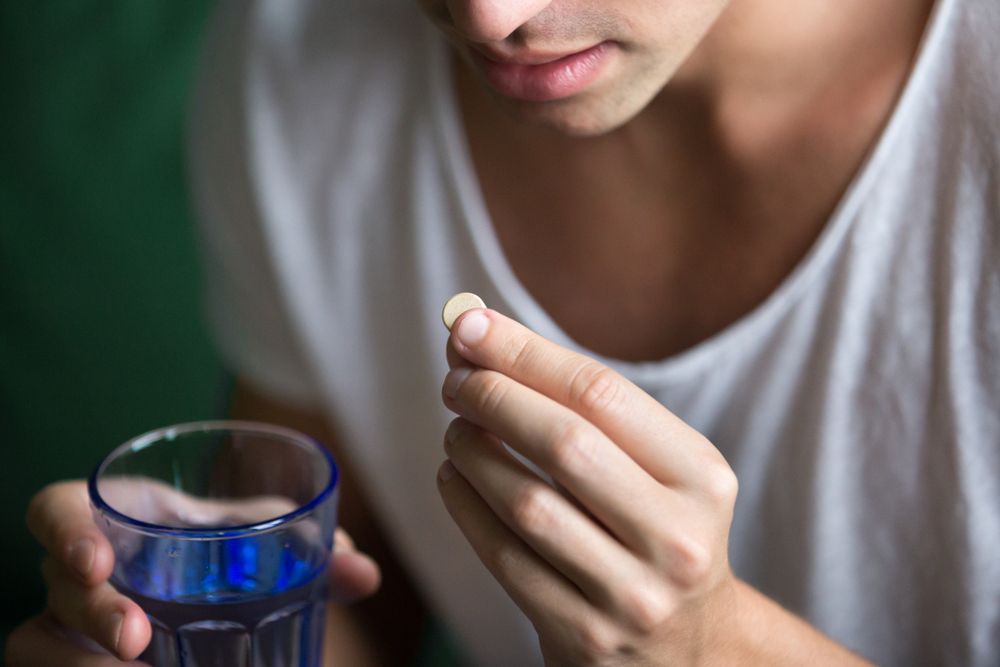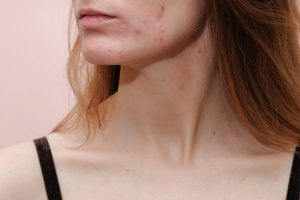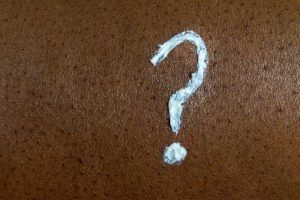Approximately 17 million Americans deal with acne. Most people try home remedies for acne before discussing this common skin issue with their doctor. But acne encompasses a variety of skin issues. (Learn More)
Acne has different causes depending on its type. Dermatologists categorize acne into inflammatory or noninflammatory acne.
Dermatologists use different strategies to treat acne, depending on its cause. (Learn More) They may recommend an over-the-counter product, or they may be able to prescribe something that is more specific to your needs. (Learn More)
You may end up having to use an oral product or something topical depending on the strategy your dermatologist chooses. (Learn More) In all circumstances, your dermatologist will also suggest a few lifestyle changes to prevent future breakouts.
Keep in mind that even topical over-the-counter medications for acne can cause side effects. (Learn More)
Topical Medication
Topical treatments for acne are available as over-the-counter (OTC) medications or by prescription if something stronger is needed. Common treatments include gels, soaps, creams, pads, or lotions.
These are found at pharmacies, beauty supply stores, and some grocery stores. Common ingredients in these topical OTC remedies are:
- Salicylic acid. This helps the skin to shed faster, allowing new skin cells to grow and preventing the collection of dirt that causes blackheads and whiteheads.
- Benzoyl peroxide. This ingredient clears pores and makes it easier for your skin cells to shed, decreasing bacteria that leads to acne.
- Your body converts sulfur into sulfurous acid, which is known to be antibacterial. Sulfur also aids in the breakdown of blackheads and whiteheads.
- Retin-A. This is a synthetic form of vitamin A that works as a chemical peel.
- Azelaic acid. This ingredient decreases excess oil production and bacterial output.
Many prescription topical medications have these ingredients in them, but at higher doses. Some topical medications have a combination of one or more ingredients to better combat acne.
Prescription topical medications require a visit to your dermatologist. They can cause side effects, such as dry skin, peeling, and irritation. These usually subside after your skin gets used to treatment.
Oral Medication
If your acne does not clear up with topical medication, you have a few oral medication alternatives. Oral medications are sometimes called systemic medications.
Oral medication is often used when acne is difficult to control or when it appears on parts of the body that are difficult to reach. Acne that appears on your back, for example, may require an oral medication because it can be difficult to apply gels or creams.
Unlike topical medication, there are no over-the-counter oral acne medications you can buy from a pharmacy. All oral acne medications require a prescription. Some options include:
- Per Mayo Clinic, your dermatologist may prescribe antibiotics if your acne is stubborn. Oral antibiotics are meant to fight bacteria that cause acne and are best used along with topical medications such as benzoyl peroxide. Your dermatologist will often prescribe antibiotics for the least amount of time possible. This prevents you from becoming resistant to them.
- This medication is known for being the most effective acne medication of its kind. It belongs to a family of medications called retinoids because it comes from a lab-made version of vitamin A. Isotretinoin is typically taken once or twice per day and decreases the size of oil-producing glands so your skin produces less oil.
You should know that isotretinoin is linked to the following side effects:
- Nosebleed
- Chapped lips
- Thinning hair
- Dry mouth, eyes, and nose
- Depression
Anyone who takes isotretinoin is expected to sign up to iPledge due to the severity of symptoms. This program is meant to prevent pregnant women from taking isotretinoin during their pregnancy or to stop if they become pregnant. Men who take the medication must also take part in iPledge and meet certain requirements when they take the medication.
- Anti-androgens. Healthline explains that androgens like testosterone allow both women and men to develop certain sex traits. If your acne is caused by excess androgens, your dermatologist may prescribe an anti-androgen. Women with polycystic ovary syndrome (PCOS) may receive a prescription for anti-androgens to treat their acne as well as other issues caused by excess testosterone production.
The following are known side effects of anti-androgens: - Irregular menstrual cycles
- Skin rashes
- Decreased body and facial hair
- Decreased libido
- Birth defects if taken during pregnancy
- Combined oral contraceptives. Contraceptives with progestin and estrogen are known to decrease acne. The combined contraceptives decrease androgens, which reduces the production of sebum that could clog your pores.
The FDA has also approved several contraceptives for their use on acne.
Different Types of Acne
There are two kinds of acne.
- Inflammatory: cystic acne that results in large lesions
- Noninflammatory: blackheads or whiteheads that are a bit easier to hide
You may have heard of the following names for different types of acne:
- Blackheads
- Whiteheads
- Cystic acne
- Stress-induced acne
- Hormonal acne
In a January 2011 study published by the Indian Journal of Dermatology, dermatologists used acne vulgaris to describe breakouts that are difficult to treat. Acne vulgaris is known to present in the teen years, but it can occur in adults. The term describes severe inflammatory acne that results in cysts.
The majority of acne forms because bacteria and dead skin cells stick in your pores. It is also true that hormones can influence the occurrence of acne or how severe it is.
Which Medication Type Is Best?
Most people react well to topical OTC medication, but if you are reading this, you are likely dealing with acne that requires a more strategic approach. Per Racked, dermatologists tend to start patients out with topical treatments.
Dermatologists may even recommend or suggest OTC solutions before prescribing a medication containing salicylic acid or retinoids. If you have non-inflammatory acne or inflammatory acne that is not severe, you may receive a prescription for retinoids or salicylic acid medications.
Stronger topical medication may be used for more severe cases of acne. Your dermatologist will then decide if you need an oral medication. In the United States, all oral acne medications are prescription-only, and they are often used along with topical medications as well.
Science shows that people develop acne for different reasons. This means there is no one medication that works better than another at relieving acne. Your dermatologist will prescribe what they determine will be best for you.
Frequently Asked Questions
Are there different kinds of acne?
There are two basic kinds of acne: inflammatory or noninflammatory. Inflammatory acne is associated with red, painful bumps. Noninflammatory acne includes blemishes that are not painful, such as blackheads.
What are the causes of acne?
You may get acne due to hormonal changes, your diet, or because of bacteria that collects in your pores.
What is the difference between oral and topical medications for acne?
Oral medications are taken by the mouth and often include antibiotics. All require a doctor’s prescription. Topical medications are applied directly to the skin.
Some of them are available over the counter and do not require a doctor’s visit. Stronger formulations are available with a prescription and may be used alone or to supplement an oral acne medication.
Is a prescription necessary for oral or topical acne treatments?
Currently, a prescription is necessary for all oral treatments and some topical treatments.
Will I experience any side effects if I use medication to treat my acne?
Yes. Topical acne medications are associated with irritation and dry skin, even if they are gentle over-the-counter treatments. These side effects usually go away as your skin gets used to the product. More serious side effects of topical treatments are peeling skin, itchiness, or a burning sensation.
Oral medications may come with a host of side effects depending on what they are. This can include upset stomach or dizziness if you use antibiotics. Patients who use birth control for their acne face a higher risk of developing blood clots or increased blood pressure.
References
Acne. (December 27, 2018). Mayo Clinic.
Oral Acne Medication Options. (March 9, 2019). Verywell Health.
Acne Vulgaris Treatment: The Current Scenario. (January 2011). Indian Journal of Dermatology
A Dermatologist Explains All the Ways to Treat Acne. (April 12, 2018). Racked.
Acne Treatment: Types, Side Effects, and More. (December 2, 2016). Healthline.
Acne: How to Treat It. (June 28, 2017). Medical News Today.
Topical Prescription Acne Treatments. (March 9, 2019). Verywell Health.
Types of Acne and How to Treat Them. (April 21, 2017). Healthline.
Isotretinoin. (May 6, 2019). Verywell Health.
Your Guide to Anti-Androgens. (February 5, 2019). Healthline.
Using Birth Control to Improve Acne. (December 11, 2018). Healthline.




